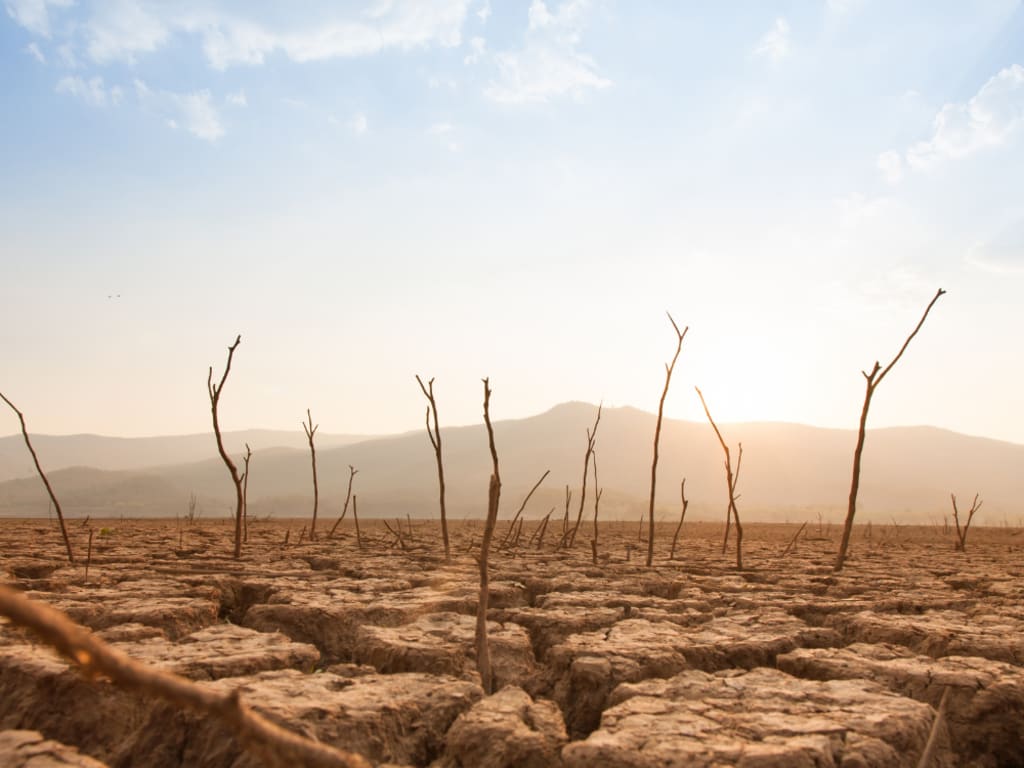How Climate Change is Affecting Global Food Security?
Exploring the Alarming Impacts on Global Agriculture and Nutrition

Climate change is having a profound impact on global food security, jeopardizing the availability, accessibility, and affordability of food for millions of people around the world. As temperatures rise, weather patterns become more erratic, and extreme events become more frequent, the agricultural sector is facing numerous challenges. In this article, we will explore how climate change is affecting global food security and discuss the implications for sustainable food production and the well-being of communities worldwide.
Changing Weather Patterns and Crop Yields
Climate change is altering weather patterns, leading to increased variability in precipitation and temperature. Rising temperatures can accelerate crop development, leading to shorter growing seasons and affecting the yield and quality of crops. Extreme weather events such as droughts, floods, heatwaves, and storms can devastate agricultural production, leading to reduced crop yields and food shortages.
Water Scarcity and Irrigation Challenges
Water scarcity is a significant concern in many regions, exacerbated by climate change. Changes in precipitation patterns and increased evaporation rates intensify water stress, affecting agricultural water availability for irrigation. Shrinking glaciers, reduced snowpack, and changes in rainfall patterns impact the availability of freshwater sources, posing challenges for irrigated agriculture. Water scarcity can lead to reduced crop productivity, compromised food production, and increased competition for limited water resources.
Pests, Diseases, and Invasive Species
Climate change influences the distribution and abundance of pests, diseases, and invasive species, posing additional threats to agricultural systems. Rising temperatures can facilitate the expansion of pests and diseases into new regions, affecting crop health and productivity. Invasive species can outcompete native species, disrupt ecosystems, and damage agricultural production. Climate change-induced shifts in pest dynamics require adaptive pest management strategies to safeguard crop yields and prevent food losses.
Impact on Livestock and Fisheries
Climate change also affects livestock and fisheries, which play a crucial role in global food security. Rising temperatures, heat stress, and changing rainfall patterns impact animal health, reproduction, and productivity. Reduced availability and quality of forage can lead to inadequate nutrition for livestock. In marine and freshwater ecosystems, warming waters, ocean acidification, and habitat degradation disrupt fish populations and reduce fishery productivity, affecting the livelihoods of communities dependent on fisheries.
Disruption of Food Supply Chains
Climate change can disrupt food supply chains, affecting the availability and affordability of food. Extreme weather events and changing environmental conditions can damage infrastructure, disrupt transportation networks, and compromise storage facilities. Disruptions in supply chains can lead to food price volatility, limited access to nutritious food, and increased food insecurity, particularly for vulnerable populations.
Impacts on Smallholder Farmers and Rural Communities
Smallholder farmers, who often rely on rainfed agriculture and have limited access to resources and technologies, are particularly vulnerable to the impacts of climate change. Reduced crop yields, increased pest pressure, and water scarcity can undermine the livelihoods of small-scale farmers, exacerbating poverty and food insecurity. Climate change-induced migration from rural to urban areas can also strain urban food systems and increase food demand in already crowded cities.
Ecosystem Services and Biodiversity Loss
Climate change affects ecosystem services that are vital for agricultural productivity, such as pollination, natural pest control, and nutrient cycling. Disruptions to ecosystems and loss of biodiversity can compromise the resilience and stability of agricultural systems. Preserving and restoring natural habitats, promoting agroecological approaches, and conserving biodiversity are essential for maintaining sustainable food production in the face of climate change.
Adaptation and Resilience Strategies
Adaptation and resilience strategies are crucial for mitigating the impacts of climate change on food security. These strategies include developing climate-resilient crop varieties, implementing water-saving irrigation techniques, improving soil management practices, diversifying agricultural systems, and strengthening early warning systems for extreme weather events. Supporting smallholder farmers with access to climate-smart technologies, financial resources, and capacity-building initiatives can enhance their resilience to climate change.
Sustainable and Climate-Smart Agriculture
Transitioning towards sustainable and climate-smart agriculture is key to ensuring future food security. Climate-smart agricultural practices, such as agroforestry, conservation agriculture, and precision farming, can enhance productivity, conserve natural resources, and reduce greenhouse gas emissions. Promoting sustainable farming practices, implementing agroecological principles, and integrating climate change considerations into agricultural policies are crucial steps towards building resilient food systems.
International Cooperation and Policy Interventions
Addressing the challenges posed by climate change on food security requires international cooperation, policy interventions, and financial support. Collaborative efforts are needed to reduce greenhouse gas emissions, enhance climate resilience, promote sustainable agriculture, and support vulnerable communities. Policy measures such as climate adaptation plans, climate-smart agriculture strategies, and social safety nets can help build adaptive capacity, strengthen food systems, and protect the most vulnerable populations.
Enjoyed the read? Show your support for my future pieces with a small contribution. Every gift counts!
About the Creator
Gokhan Polard
As an experienced ERC Referral Specialist, my primary dedication lies in assisting businesses in the journey towards financial success. https://ercsolutionshub.com/






Comments
There are no comments for this story
Be the first to respond and start the conversation.